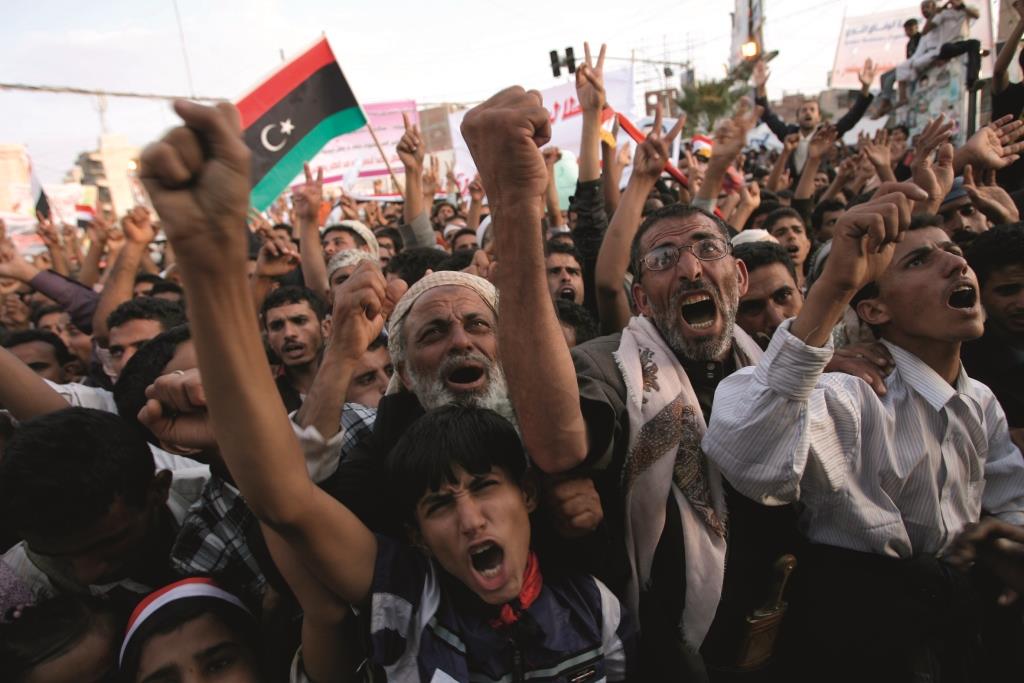For years, the late Colonel Muammar Gaddafi was a dog in a manger as far as Western business was concerned. They thought the Libyan leader was merely lying lazily on a fortune in natural resources.
It was only through a thaw in relations in the leader’s last years, that Libya opened up to investments from the West.
When the rebel National Transition Council (NTC) ousted Gaddafi in October 2011, there was the promise that the new broom would sweep the way clear for Western business—surely.
Think again. The country’s internal political divisions, the new rulers’ tenuous authority and China’s keen interest in Libya’s oil, may make the transition a mere milestone in a long legacy of rancor with Libya.

Zawiya Oil Refinery, some 40 kms west of Tripoli
Libya’s oil is the ultimate prize. Libya has the eighth largest oil reserves in the world and the second highest natural gas reserves in Africa. Prior to the revolution, oil accounted for a quarter of the country’s total economic output, and 95% of its export earnings, grossing $44 billion in 2010. While the conflict forced 1.6 million barrels-per-day production to a standstill, government reports suggest that 90% of oil installations escaped serious damage. Still, it could take up to three years to achieve pre-conflict levels of production. The question now is who will gain control of Libya’s ’s oil.
Under Gaddafi’s leadership, the National Oil Company (NOC), and a cohort of cronies close to the Colonel, determined who got what, when and how. While the NOC remains in place, the NTC has indicated that it plans to split it into three entities—Exploration and Production, Refining, and possibly Natural Gas or Solar Power, making it a commercial organization.
The NTC said it will honor all contracts signed with the Gaddafi regime. The position betrays the anxieties of a still new and insecure leadership to manage the uncertainty of transitional politics, and significantly, keeps China and other Asian powers in the mix. Besides the Libyan companies already in the fray there are: ENI; Repsol; Gazprom; Total; China National Petroleum Corporation, BP, and Exxon Mobil, in Libya’s crowded field.
How things will play out in Libya’s oil sector will be determined at the intersection of geopolitics and the country’s internal politics. The physical and political proximity of Tripoli to European players—France, Italy and the UK—effectively throws Libya into the West’s sphere of influence, and reverses China and other Asian players’ good relations with Tripoli under Gaddafi. In the context of Libya’s unsettled political environment, such diplomatic influence provides a crucial lever in the country’s oil sector. At the very least, this influence will be felt in the reconfiguration of governance in the country as a whole, and in the energy sector in particular. Libya’s new rulers have already requested for technical support in the re-construction of the oil sector, and the West’s support is bound to involve re-stringing of dynamics of governance in the sector.
Politics will of course be king in shaping the dynamics of the energy sector in Libya. Besides lining the pockets of close allies, Gaddafi used oil resources to build a remarkable social welfare state that remains unrivalled across Africa. The upshot was to rocket Libyans’ expectations on the state. Beyond instituting a democratic system of government, in which citizens have a voice and enjoy political freedoms, the NTC government will be under pressure to match, if not exceed Gaddafi’s generosity among Libyans. Key to this will be appeasing anti-Gaddafi combatants and this might yet demand that the NTC offers, in material terms, more than Gaddafi did.
While appeasing anti-Gaddafi combatants will be essential in pre-empting disillusionment, a formula for inclusive governance and development will be critical for achieving stability in Libya. Regional and tribal loyalties remain strong amongst the country’s 140 plus tribes and clans. There is also an ethnic and linguistic fault line between the Berber minority and the Arab majority. The NTC’s ability to manage inter-regional rivalries between the East and the West however will be the ultimate political challenge for the NTC.
Ultimately, the NTC’s legitimacy will hinge around its management of the economy. The challenge for the NTC will be to raise, and even exceed pre-conflict economic growth rates, which in 2010 stood at 7.4% against 2.4% inflation. The NTC will no doubt be focusing on resuscitating oil production, for which it will need significant assistance from its international partners. This creates a strong entry point for China, which has muscled its way across Africa through development support for governments under significant economic pressure.
Still, the NTC has indicated its intentions to use Libya’s resources abroad—Gaddafi’s loot basically—to rebuild the economy. At least in the first half of 2012, the country’s top diplomats will be focusing on negotiating the full release of these funds, whose bulk, ironically, is in Western institutions. In the meantime, it is very unlikely that Libya will spurn any technical support from international financial institutions, or technical support from its new allies in the West. For now, it is safe to assume that who gets what of Libya’s oil resources is a question that will in large part be answered between Tripoli and Western capitals—London and Paris, to be precise.
